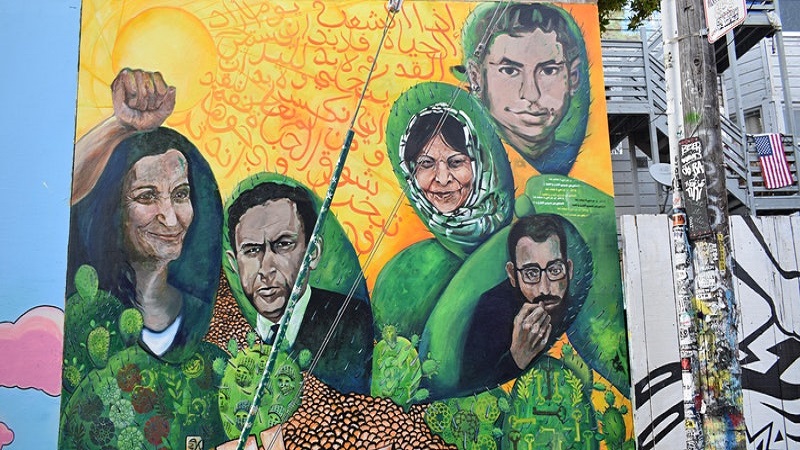10 Years On, What Does the Arab Spring Mean for Research?
Wed, Jan 13, 2021, 5 to 7:30 pm Greenwich Mean Time (UTC±0)
Register here.
It’s been exactly a decade since the uprising in Sidi Bouzid, Tunisia, on 17th December 2010 prompted the Arab Spring and inspired protests against authoritarian regimes in Egypt, Libya, Syria, Yemen, Sudan, Iraq, Jordan, Bahrain, and Oman. The Oxford Dictionary of Politics and International Relations’s entry for ‘Arab Spring’ states that ‘the protests emerged suddenly and were largely unanticipated by the majority of academic commentators.’ The uprisings refocused attention on the Arab world, and work across a wide variety of disciplines sought to understand the origins, the manifestations, the aftermath, and the outcomes of this historic moment.
Many have recognised the manifold distinctions that exist between Arab states. Amidst both the optimism and the disillusionment of many citizens across the MENA region who continue to live through the social, political, and cultural changes that the turmoil brought, researchers have been trying to understand and present a clearer image of what seems to be a chaotic reality: Has the Arab Spring been a success or a failure? Was violence always part of it? How can we best explain its religious dimension? What has shaped the processes of democratisation in countries such as Tunisia, Egypt, and elsewhere in the region? What has been the role of women in the protests and democratic transitions?
Many scholars continue to work towards developing a deeper understanding of the state of uncertainty in which the Arab region has found itself since 2011, with economic crises, counter-revolutions, and foreign military interventions. This round table will present a discussion by scholars and activists who have ongoing and longstanding scholarly interest in the modern history and politics of the Arab World. Beyond the commonly asked questions about the Arab Spring moment, the participants will discuss the opportunities and challenges they have experienced while researching and writing about political and social change in the region over the past 10 years or in some cases even longer. They will share insights about the obstacles they have encountered in their own research, whether that is difficulty accessing certain archives, or the uses and limitations of certain research methods. By focusing on the researcher and their methods, while drawing on their vast, rich experience and reflecting on the process of researching the MENA, this round table will offer a uniquely illuminating and novel take on the 10th anniversary of the Arab Spring.
Offering a diverse range of perspectives and a wealth of expertise, the participants are:
Mounira M. Charrad is Associate Professor of Sociology at the University of Texas at Austin, and Non-Resident Fellow at the Baker Institute, Rice University. She is the author of the awards winning book, States and Women’s Rights: The Making of Postcolonial Tunisia, Algeria, and Morocco (University of California Press, 2001); and most recently co-edited with Rita Stephan, Women Rising: in and Beyond the Arab Spring (NUY Press, 2020).
Nadje Al Ali is Professor of Anthropology & Middle East Studies at Brown University, as well as Director of Center for Middle East Studies at Brown University. Nadje Al-Ali is the author of Iraqi Women: Untold Stories From 1948 to the Present (Zed Books, 2007) and co-author with Nicola Pratt of What Kind of Liberation? Women and the Occupation of Iraq (University of California Press, 2009), and most recently Gender, Governance and Islam – Exploring Muslim Contexts (Edinburgh University Press, 2019), co-edited with Deniz Kandiyoti and Kathryn Spellman-Poots.
Michael Willis is King Mohammed VI Fellow in Moroccan and Mediterranean Studies at St Anthony’s College, University of Oxford, and author of Politics and Power in the Maghreb: Algeria, Tunisia and Morocco from Independence to the Arab Spring (Hurst and Oxford University Press, 2012) and The Islamist Challenge in Algeria: A Political History (Ithaca and New York University Press, 1997) and co-editor of Civil Resistance in the Arab Spring: Triumphs and Disasters (Oxford University Press, 2015).
Max Gallien is a political scientist specialising in the politics of informal and illegal economies, the political economy of development and the modern politics of the Middle East and North Africa, and Research Fellow at the Institute of Development Studies (IDS) and at the International Centre for Tax and Development (ICTD). His book project examines the political economy of smuggling in the modern Maghreb, while ongoing projects on the region include work on the politics of zakat in Morocco, Egypt and Pakistan, and on the politics and history of infrastructure provision in Tunisia.
Rory McCarthy is Assistant Professor in Politics and Islam at the School of Government and International Affairs at Durham University, working on social movements, contentious politics, and Islamism in the Middle East and North Africa, and author of Inside Tunisia’s al-Nahda: Between Politics and Preaching (Cambridge University Press, 2018).
Shams Radhouani Abdi is Associate professor (Professeure Agrégée) of Anglo-American literature at Institut Supérieur des Études Appliquées en Humanités du Kef (ISEAH- Tunisia) interested in social movements and intersectional feminist activism.
Chair: Imen Neffati, Historian of Contemporary France and North Africa, and Junior Research Fellow in Religion and the Frontier Challenges at Pembroke College, University of Oxford.
Date and Time: 13th January 2021 at 5PM (UTC)
Please email imen.neffati@pmb.ox.ac.uk for questions.


